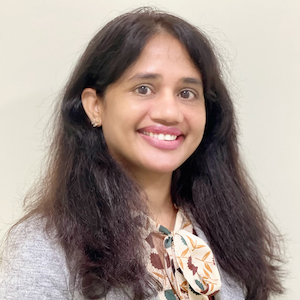Accelerated Program
AUSOM’s Accelerated Medical Program is designed to give students an opportunity to fully grasp the preclinical science coursework in five semesters. The final semester of the preclinical sciences is the MD5 semester, which is the “board preparatory” semester that will prepare students for the USMLE Step 1. Upon passing the USMLE Step 1, students will begin their clinical rotations.

Academic Requirements: (Both of the requirements below must be met in order to be eligible for the Accelerated program)
- Bachelor’s degree, or, a minimum of 90 credit hours completed at the premedical/undergraduate level (with mandatory prerequisites completed), and,
- Applicants must have a minimum MCAT score of 491 or higher. The MCAT score and bachelor’s degree should have been achieved within the last three years.
- If you do not meet the requirements listed above, please refer to our Regular Medical Program
“As the Dean of Preclinical Sciences, it is my great pleasure and privilege to welcome you to Avalon University School of Medicine. Our philosophy is to prepare our graduates to become well-rounded physicians dedicated to serving communities with great compassion and care for others.”
MD1
| Course Name | Didactic lectures and/ or small group discussions | Lab Hours | Credit Hours |
|---|---|---|---|
| Human, Structure & Function 1 (HSF001) | 6 | 8 | 10 |
| Molecular Basis of Medicine 1 (MBM001) | 4 | 1 | 4.5 |
| Medical Ethics & Clinical Skills 1 (CS0001) | 4 (including lab work) | 4 | |
| Epidemiology & Biostatistics (EPI001) | 3 | NA | 3 |
| Problem-Based Learning 1 (PBL001) | 2 | NA | 1 |
MD2
| Course Name | Didactic lectures and/ or small group discussions | Lab Hours | Credit Hours |
|---|---|---|---|
| Human, Structure & Function 2 (HSF002) | 6 | 6 | 9 |
| Molecular Basis of Medicine 2 (MBM002) | 4 | 1 | 4.5 |
| Mind, Brain & Behavior 1 (MBB001) | 4 | 1 | 4.5 |
| Clinical Skills 2 (CS0002) | 4 (including lab work) | 4 | |
| Problem – Based Learning 2 (PBL002) | 2 | NA | 1 |
| EBM* & ICR* – 1 (EBM001) | 1 | NA | 1 |
*EBM – Evidence-Based Medicine, *ICR – Introduction to Clinical Research
MD3
| Course Name | Didactic lectures and/ or small group discussions | Lab Hours | Credit Hours |
|---|---|---|---|
| Diseases, Immunity & Therapeutics 1 (DIT001) | 12 | 2 | 13 |
| Mind, Brain & Behavior 2 (MBB002) | 4 | 1 | 4.5 |
| Clinical Skills 3 (CS0003) | 4 (Including lab works) | 4 | |
| Problem-Based Learning 3 (PBL003) | 2 | NA | 1 |
| EBM* & ICR* – 2 (EBM002) | 1 | NA | 1 |
*EBM – Evidence-Based Medicine, *ICR – Introduction to Clinical Research
MD4
| Course Name | Didactic lectures and/ or small group discussions | Lab Hours | Credit Hours |
|---|---|---|---|
| Diseases, Immunity & Therapeutics 2 (DIT002) | 14 | 2 | 15 |
| EBM* & ICR* – 3 (EBM003) | 2 | NA | 2 |
| Clinical Skills 4 (CS0004) | 4 (including lab work) | 4 | |
| Problem – Based Learning 4 (PBL004) | 2 | NA | 1 |
*EBM – Evidence-Based Medicine, *ICR – Introduction to Clinical Research
Fifth Semester (MD5)
MD5
The Fifth Semester is the final semester of the preclinical sciences, and is the “bridge” semester between the preclinical and clinical sciences. The Fifth Semester offers the course, Comprehensive Preclinical Science Review, which consists of board preparatory material. During the Fifth Semester, students will solely study for their first medical licensing exam, the United States Medical Licensing Exam (USMLE) Step 1. Once a student passes the USMLE Step 1, they will be eligible to begin clinical rotations.
| Course Name | Didactic lectures and/ or small group discussions | Lab Hours | Credit Hours |
|---|---|---|---|
| Comprehensive Review Course of Preclinical sciences |
Total of 285 contact hours |
19 | |
| Getting into Residency (GIR) | 2 |
Introduction to Clinical Medicine (ICM) – 6 Weeks
Before a student begins their clinical rotations, they will be required to complete a 6 week ICM course. This course will be conducted at the site of where the student will be completing their clinical rotations. ICM is designed to help prepare students on the basic clinical skills required to understand during their clinical rotations, and this course will be taught by an Avalon preceptor.
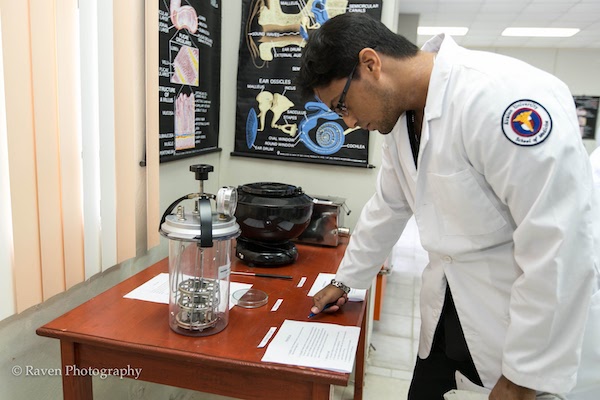
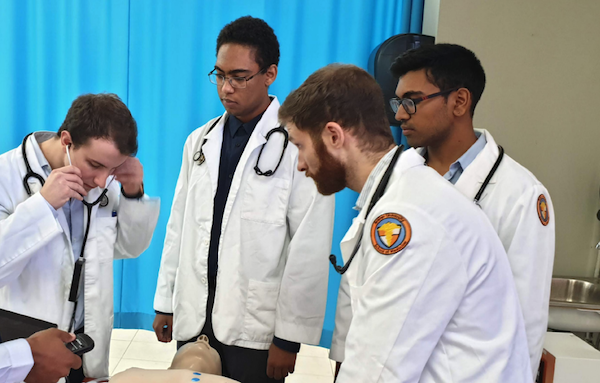
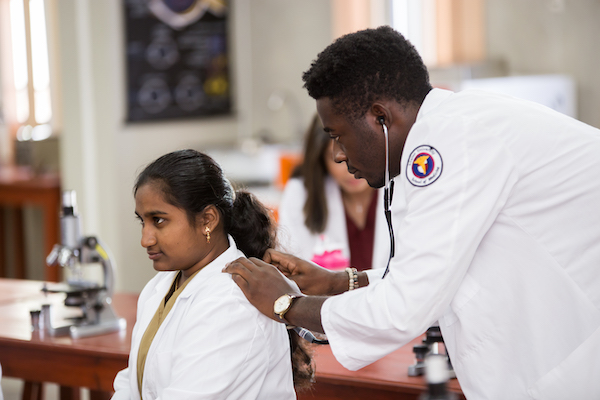
Clinical Science
“The most exciting phase of training to be a physician is the integration of Basic Science knowledge into clinical practice. We are preparing graduates who possess personal qualities, professional skills and ethical standards that improve patient outcomes. Always keep the patients’ interest above your own and satisfy the needs of the community with increasingly diverse populations.”
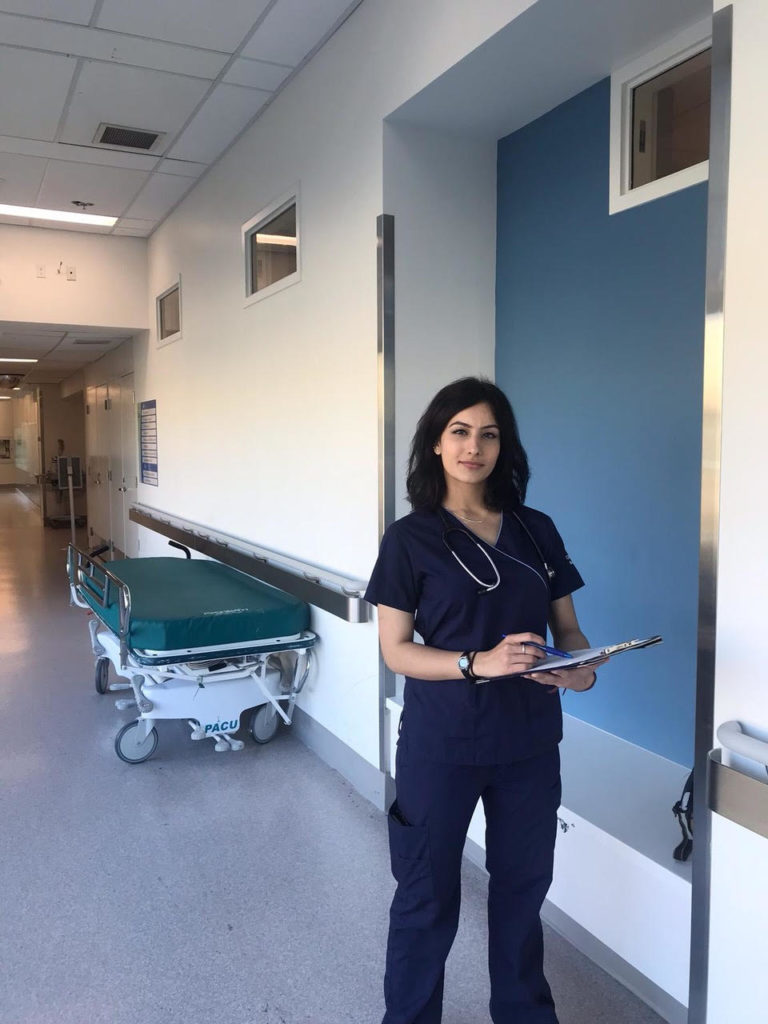
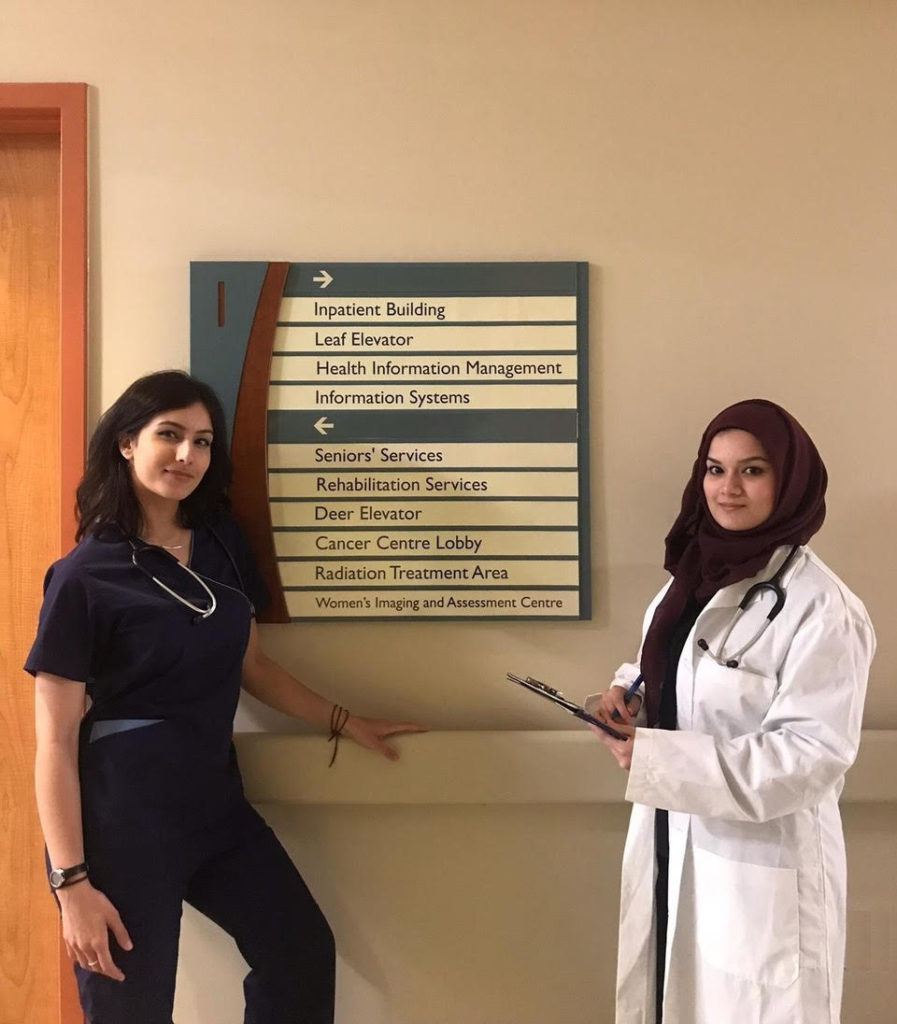
CM1 – CM6 ( 72 Weeks )
Avalon University School of Medicine’s clinical science program is designed for students to apply their preclinical science knowledge in a hospital setting under the direct supervision of our faculty physicians. Students participate in 48 weeks of required Core rotations and 24 weeks of Elective rotations. With hands-on training and patient interaction, students will build upon their medical knowledge and strengthen their clinical skills. The clinical science program is an exciting experience, and Avalon students are expected to exhibit professionalism, maturity, compassion, and responsibility.
We have established hospital affiliations with ACGME-approved teaching hospitals across the United States located in Beckley, WV, Chicago, IL, and Phoenix, AZ. The Core rotation requirements are listed below. The 24 weeks of Elective rotations are chosen by the student and will provide experience in specialities or care settings you’re considering for residency. Avalon offers a wide variety of Elective rotations which will allow them to gain experience in different specialities.
Third-year medical students are required to complete core clerkships in the following areas:
CORE Rotations (48 Weeks)
| CORE ROTATION | DURATION |
|---|---|
| Internal Medicine (IM) | 12 Weeks |
| Surgery (SURG) | 12 Weeks |
| Pediatrics (PEDS) | 6 Weeks |
| Family Medicine (FM) | 6 Weeks |
| Psychiatry (PSYCH) | 6 Weeks |
| Obstetrics & Gynecology (OBGYN) | 6 Weeks |
Some rotation sites may be subject to an additional surcharge (due to site-specific direct expenses)
Fourth-year medical students must complete 24 weeks of electives of their choice. Some available electives include:
Elective rotations (24 weeks)
| Anesthesiology | Cardiology |
| Child Psychiatry | Dermatology |
| Emergency Medicine | Endocrinology |
| ENT / Plastic Surgery | Gastroenterology |
| Geriatrics | Hematology / Oncology |
| Infectious Disease | Medical Education |
| Nephrology | Neurology |
| Urology | Opthalmology |
| Orthopedic Wound Care | Pulmonology |
Expanding Clinical Rotations
Avalon University School of Medicine is proud to announce its strategic expansion of clinical rotation opportunities with three exciting new affiliations: PrimeHealth in California, Wyckoff Heights Medical Center in New York, and Banner Health in Arizona. This initiative reflects Avalon’s commitment to providing its students with comprehensive and diverse clinical experiences, solidifying its graduates’ ability to match in a wide variety of residency programs.
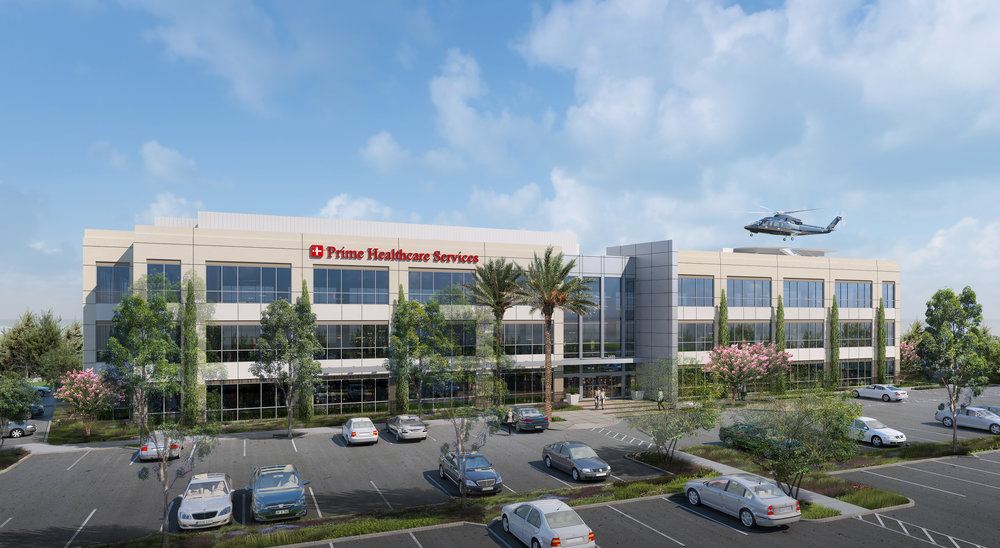
PrimeHealth in California
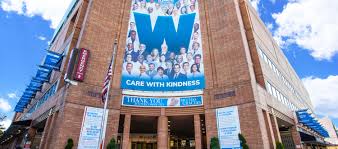
Wyckoff Heights Medical Center, NY
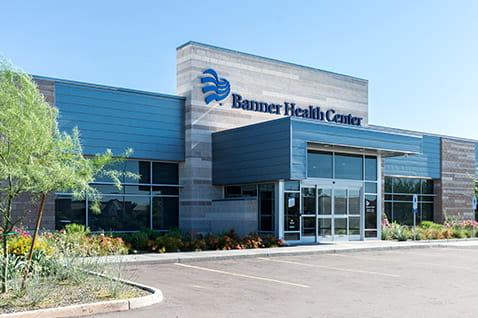
Banner Health in Arizona
New York (NY) and California (CA) are two states known for their International Medical Graduate (IMG)-friendly policies, offering numerous opportunities for international medical graduates to pursue residency training. In New York, IMGs have access to a diverse range of residency programs across various specialties, including prestigious institutions where Avalon graduates specifically have completed residency such as Wyckoff Heights Medical Center, Brookdale University Hospital, and Coney Island Hospital to name a few. The state’s large and diverse patient population, coupled with its renowned academic medical centers, makes it an attractive destination for IMGs seeking high-quality training and clinical experience. Additionally, New York’s Health Care Workforce Transformation Act (HCWTA) aims to increase diversity in the healthcare workforce, supporting IMGs in their pursuit of residency positions.
Similarly, California boasts a favorable environment for IMGs, offering a multitude of residency programs where Avalon University graduates have found success in residencies like Chino Valley Medical Center, Desert Regional Medical Center, and Palmdale Regional Medical Center. With its cutting-edge research opportunities, innovative healthcare delivery models, and commitment to diversity and inclusion, California provides IMGs with a conducive environment to thrive in their medical careers. Furthermore, the state’s Health Professional Shortage Area (HPSA) designation in underserved regions creates additional residency opportunities for IMGs interested in addressing healthcare disparities and serving vulnerable populations.
Overall, both New York and California offer IMGs a wealth of opportunities to pursue residency training, contribute to patient care, and advance their medical careers in dynamic and diverse healthcare settings.
The addition of these states to Avalon’s network of clinical affiliates marks a significant milestone in the school’s mission to offer high-quality medical education that prepares students for residency. These healthcare institutions are renowned for their commitment to excellence in patient care, medical research, and education, making them ideal partners for Avalon University.
By expanding its clinical rotation opportunities through partnerships with Banner Health, and into the states of New York and California, Avalon University School of Medicine is empowering its students to become compassionate, skilled, and culturally competent healthcare professionals. These affiliations not only enhance the educational experience for Avalon students but also strengthen the school’s reputation.

